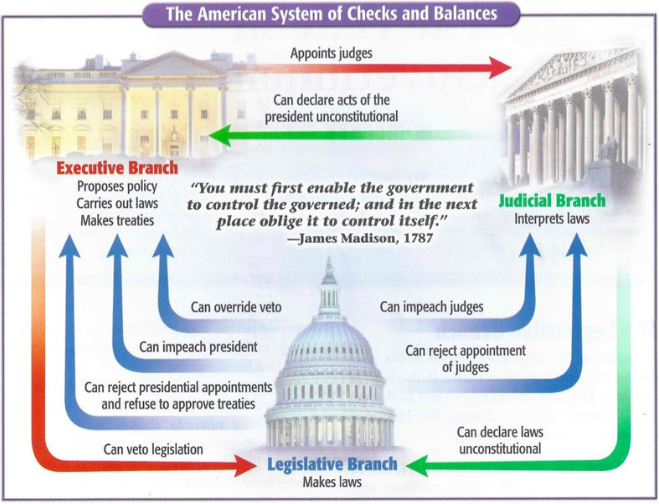Bill of Rights, Six Basic Principles, & Articles
1/22
There's no tags or description
Looks like no tags are added yet.
Name | Mastery | Learn | Test | Matching | Spaced | Call with Kai |
|---|
No analytics yet
Send a link to your students to track their progress
23 Terms
First Amendment (1791)
Freedoms of:
speech
assembly
petition
press
religion
Second Amendment (1791)
Right to:
Bear Arms
Third Amendment (1791)
Freedom FROM:
Quartering troops in times of peace
Fourth Amendment (1791)
Freedom FROM:
Unreasonable search & seizure
Fifth Amendment (1791)
Eminent Domain
Double Jeopardy
Self-Incrimination
Right to a Grand Jury
Due Process
Sixth Amendment (1791)
The Right To:
a speedy and public trial in all criminal cases
trial by jury in all criminal cases
counsel
Seventh Amendment (1791)
trial by jury in all civil cases
Eighth Amendment (1791)
Freedom FROM:
cruel and unusual punishment
Ninth Amendment (1791)
Unenumerated Rights to the People
Tenth Amendment (1791)
Unenumerated Rights to the States
Article I
Legislative branch
Article II
Executive Branch
Article III
Judicial Branch
Article IV
State Relations
Article V
Amendment Process
Article VI
Supremacy of the Government
Article VII
Ratification Process
Six Basic Principles: Popular Sovereignty
The principle that the people are the only source for all governmental power.
The government rules through leaders elected by the people to represent the people.
The Preamble notes that the Constitution is created by “We the People”.
Ex: Voting
Six Basic Principles: Limited Government
Government may only do those things the people have given it the power to do.
Government must obey the law.
Much of the Constitution spells out limit on the power of the government.
EX: 5th amendment- due process law
Gov must obey laws, gov does not have absolute power
Six Basic Principles: Separation of Powers
The Constitution divides power among the Legislative, Executive, and Judicial branches.
Congress makes laws
Executive enforces laws
Judicial interprets laws
Why important?
It keeps a strong central government from being too powerful
Too much power in one branch could lead to abuses of that power.
Six Basic Principles: Checks and Balances
Each branch of the federal government can check the other two.
EX:
The President can veto bills passed by Congress, but Congress can override it
The Senate can reject presidential appointees or refuse to ratify a treaty
Congress can vote to impeach a federal official
The federal courts can rule acts unconstitutional.
The use of checks is rare
Compromise is more common
Conflicts more likely when Congress and the presidency are controlled by different parties.
Checks and balances are weakened by political parties

Six Basic Principles: Judicial Review
Judicial Review is NOT in the Constitution
Added by a court case called Marbury vs. Madison in 1803
Main Players:
John Adams
Second US president
Founding father
Thomas Jefferson
Third US president
Democratic republican
The Courts can decide if a government action is constitutional.
The power of judicial review is held by all federal courts and most state courts.
What do the courts rule on?
Presidential Acts
Congressional Laws
State Acts/laws
Six Basic Principles: Federalism
the division of power among a central government (federal) and several regional governments (state)
States and national gov share power
COMPROMISE
Problem- how to build a new, stronger, more effective National Government while preserving the existing States and the concept of local self-government.
It corrected the weaknesses of the Article of Confederation without replacing them with a British-style monarchy